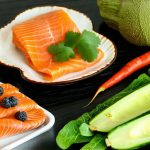The gut microbiome, an intricate ecosystem residing within our digestive tract, plays a pivotal role in overall health, influencing everything from digestion and nutrient absorption to immune function and even mental wellbeing. Maintaining a healthy balance of bacteria within this ecosystem is crucial, and probiotics – live microorganisms intended to benefit the host when consumed – have become increasingly popular as a means to achieve that balance. However, the probiotic landscape has broadened considerably beyond traditional dairy-based sources. Today, consumers are presented with a wide array of vegan probiotic options, raising questions about their efficacy compared to their dairy counterparts, and which might be best suited for individual needs. This article delves into a comprehensive comparison of dairy-based versus vegan probiotics, exploring their unique characteristics, benefits, potential drawbacks, and considerations for optimal digestive and immune support.
Understanding the nuances between these two categories requires acknowledging that “probiotic” isn’t a monolithic entity. The type of bacteria used, the delivery method (capsule, fermented food, etc.), the dosage, and individual factors all contribute to how effectively a probiotic will function. While dairy-based probiotics have historically dominated the market due to their natural presence in fermented foods like yogurt and kefir, vegan options are rapidly gaining traction as awareness around dietary choices and plant-based lifestyles grows. The key difference isn’t necessarily about if a probiotic is effective, but rather how its source might impact its survival through digestion, colonization within the gut, and ultimately, its overall benefit to the host.
Dairy-Based Probiotics: A Traditional Approach
Dairy-based probiotics have long been recognized for their digestive and immune benefits. Fermented dairy products like yogurt and kefir naturally contain Lactobacillus and Bifidobacterium species, well-studied probiotic strains known for their positive impact on gut health. The milk itself provides a nurturing environment for these bacteria, often enhancing their survival during processing and consumption. This inherent compatibility between the bacteria and the medium can lead to higher bacterial counts reaching the intestines. However, it’s crucial to note that not all dairy products are created equal – pasteurization after fermentation can kill off beneficial bacteria, so look for “live and active cultures” on the label.
The advantage of dairy-based probiotics extends beyond just bacterial content; the presence of milk proteins like casein and whey can contribute to a slightly more favorable environment for certain probiotic strains to adhere to the gut lining. This adhesion is vital for colonization, allowing the bacteria to establish themselves and exert their beneficial effects over time. Additionally, some individuals simply prefer the taste or texture of dairy-based probiotics, making adherence to a regular probiotic regimen easier. However, this very feature – the presence of dairy – creates an inherent limitation: those with lactose intolerance or dairy allergies are unable to benefit from these options without experiencing adverse reactions.
Furthermore, concerns about saturated fat content in some dairy products might deter individuals focused on heart health or specific dietary patterns. It’s important to choose low-fat or non-fat options if this is a concern and always consider the overall nutritional profile of the product alongside its probiotic benefits. The bioavailability of nutrients within the dairy matrix can also be a point of consideration, though often a secondary one compared to the core probiotic effect itself.
Vegan Probiotics: Expanding the Options
Vegan probiotics offer a compelling alternative for individuals following plant-based diets or those with dairy sensitivities. These probiotics are derived from non-dairy sources, utilizing strains cultivated in plant-based fermentation mediums like soy, coconut milk, or even specialized vegetable broths. The rise of vegan probiotic supplements reflects a growing demand for inclusive health solutions and caters to diverse dietary preferences. While some initially questioned whether vegan probiotics could achieve the same efficacy as their dairy counterparts, research is demonstrating that well-formulated vegan options can be just as effective – and in some cases, even more so depending on the strains used and the method of delivery.
The key to a successful vegan probiotic lies in its formulation. Manufacturers must carefully select strains known for their resilience and ability to survive the digestive process without the protective environment provided by dairy. Encapsulation technology plays a vital role here, shielding the bacteria from stomach acid and ensuring they reach the intestines intact. Additionally, incorporating prebiotics – non-digestible fibers that feed beneficial gut bacteria – can further enhance the effectiveness of vegan probiotics. Prebiotics create a more hospitable environment for probiotic colonization, maximizing their impact on gut health.
Vegan probiotics are not limited to supplemental form; fermented plant-based foods like kimchi, sauerkraut, tempeh, and miso also offer significant probiotic benefits. These whole food sources provide additional nutrients and fiber alongside the live cultures, contributing to overall health. However, similar to dairy-based options, processing methods can impact bacterial viability – unpasteurized fermented foods generally contain higher concentrations of probiotics. If you struggle with bloating, consider combining probiotics and diet changes.
Strain Specificity & Gut Colonization
The effectiveness of any probiotic, regardless of its source (dairy or vegan), hinges on strain specificity. Different strains of bacteria exert different effects on the body. For example, Lactobacillus rhamnosus GG is well-studied for its role in alleviating diarrhea, while Bifidobacterium infantis has shown promise in managing symptoms of Irritable Bowel Syndrome (IBS). Simply choosing a probiotic labeled “dairy” or “vegan” isn’t enough; you need to identify strains clinically proven to address your specific health concerns.
Colonization is another critical factor. Probiotics don’t permanently reside in the gut, but rather transiently impact the microbiome. For effective long-term benefits, probiotics must be able to adhere to the intestinal lining and compete with harmful bacteria. This ability is influenced by factors like strain characteristics, individual gut environment, and dietary habits. Some strains are naturally more adept at colonization than others, requiring higher dosages or repeated supplementation to maintain their presence. Prebiotic intake can significantly improve colonization rates, creating a favorable environment for probiotic growth.
The delivery method also impacts colonization. Enteric-coated capsules protect probiotics from stomach acid, allowing them to reach the intestines in greater numbers. Delayed-release capsules further enhance this protection, ensuring optimal delivery. Regardless of whether you choose dairy or vegan options, prioritizing strains with demonstrated colonization abilities and utilizing appropriate delivery methods is essential for maximizing benefit. It’s also important to consider nutrition support if you have digestive motility disorders.
Digestive Support & Symptom Management
Both dairy-based and vegan probiotics can offer significant digestive support. They help restore balance to the gut microbiome, which can be disrupted by factors like antibiotics, stress, poor diet, and illness. This restoration can lead to improvements in symptoms such as bloating, gas, constipation, diarrhea, and abdominal discomfort. Probiotics aid digestion by breaking down complex carbohydrates, increasing nutrient absorption, and strengthening the intestinal barrier – a crucial line of defense against harmful substances.
For individuals with IBS, specific probiotic strains have demonstrated efficacy in reducing symptom severity. Bifidobacterium infantis 35624, for example, has been clinically shown to alleviate abdominal pain, bloating, and altered bowel habits associated with IBS-D (diarrhea-predominant IBS). Similarly, certain Lactobacillus strains can help manage constipation in individuals with IBS-C (constipation-predominant IBS). However, it’s important to remember that probiotic response is highly individual; what works for one person may not work for another. If you struggle with chronic fatigue alongside digestive issues, meal planning can be incredibly helpful.
Vegan probiotics are particularly beneficial for those with dairy sensitivities or allergies who might otherwise be excluded from reaping the digestive benefits of fermented dairy products. Plant-based options provide a safe and effective alternative for restoring gut balance without triggering adverse reactions. The increasing availability of vegan probiotic supplements and fermented plant foods makes incorporating these beneficial microbes into a healthy lifestyle more accessible than ever before. Understanding taste, smell, and texture can also improve digestive tolerance.
Immune System Modulation & Long-Term Health
The gut microbiome is intimately connected to the immune system, often referred to as “gut-immune axis”. Approximately 70-80% of our immune cells reside in the gut, and probiotics play a vital role in modulating immune function. They stimulate the production of antibodies, enhance natural killer cell activity, and regulate inflammatory responses. By strengthening the gut barrier and promoting a healthy microbiome, probiotics help protect against pathogens and reduce the risk of infections.
Specific probiotic strains have been shown to shorten the duration and severity of common illnesses like colds and flu. Lactobacillus rhamnosus GG, for example, has demonstrated immune-boosting properties in studies involving children. Probiotics also contribute to long-term health by reducing inflammation, which is a key driver of chronic diseases. A balanced gut microbiome can help prevent autoimmune disorders, allergies, and even certain types of cancer.
Both dairy and vegan probiotics can contribute to these immune benefits, but the choice between them should align with individual dietary needs and preferences. Vegan options offer an inclusive solution for those avoiding dairy while still reaping the rewards of probiotic supplementation. The long-term health benefits of a balanced gut microbiome extend far beyond digestive support, impacting overall wellbeing and resilience against illness. It is important to note that probiotics are not a substitute for other healthy lifestyle practices such as a balanced diet, regular exercise, stress management, and adequate sleep – they should be viewed as an integral part of a holistic approach to health. Consider adapting favorite snacks for improved digestive compatibility and reduce food waste with helpful meal prep ideas. Finally, understanding the differences between plant-based and animal fats can further support your digestive health.


















